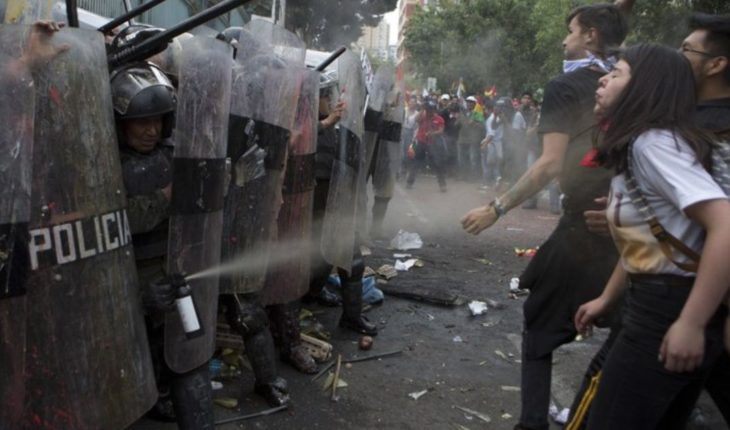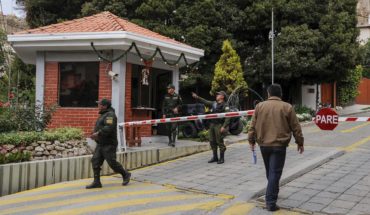major cities of Bolivia were semiparalizadas on Thursday by a strike called by opposition groups a day after the Supreme Electoral Tribunal neurosurgeon the postulation of the President Evo Morales to a fourth term. A strike with stoppage of activities, blockades and street protests took place in eight of the nine capital cities of the country’s departments. Protesters opposed to Morales to be candidate and ask to respect the referendum of February 2016, in which a slight majority of citizens rejected a constitutional reform promoted by the Government to empower the ruler for the elections of November 2019.
Soon after, a March that began Saturday in a town Konani Altiplano arrived in the afternoon at the gates of the Electoral Tribunal, where the marchers burned several dolls with the face of the ruling and made a rally that ended in clashes with the Police. The President downplayed the protest and said it was of the few, in a public ceremony in the Department of Cochabamba. “We could issue workshops to teach them,” he added in reference to the March. He also said that the Court it was not you define its constitutional, since they are not judges.
Activists blocked the streets with Bolivian flags and banners with the legend “Bolivia said No”, in reference to the referendum, and the cry of “respect my vote”. Moreover, put into question the impartiality of the Supreme Electoral.El Court strike was felt with greater force in the city of Santa Cruz, the most populous of the country, and the more critical the Bolivian ruling. Peace was paralyzed with marches close to the new Government and blocking streets.
Meanwhile, the cities of Cochabamba, Potosi, Oruro, Beni, Tarija and Chuquisaca also complied with the measure of strength, although trade and banking continued with his usual work. Fernando Cuéllar, one of the organizers of the protest, said that unemployment is forceful and pressure measurements just beginning.
For Government unemployment did not have much incidence, although he acknowledged that Santa Cruz was almost “two-thirds of the mobilized people”, said Government Minister Carlos Romero, at press conference. Morales began his administration in 2006 and three years later approved a new Constitution that opened the doors to the consecutive re-election only once, which in 2010 with 64% of the votes. Another controversial judgement of Justice-driven returned to run for the third time and repeated their triumph in 2014 and began his third term in 2015.
In this note:





